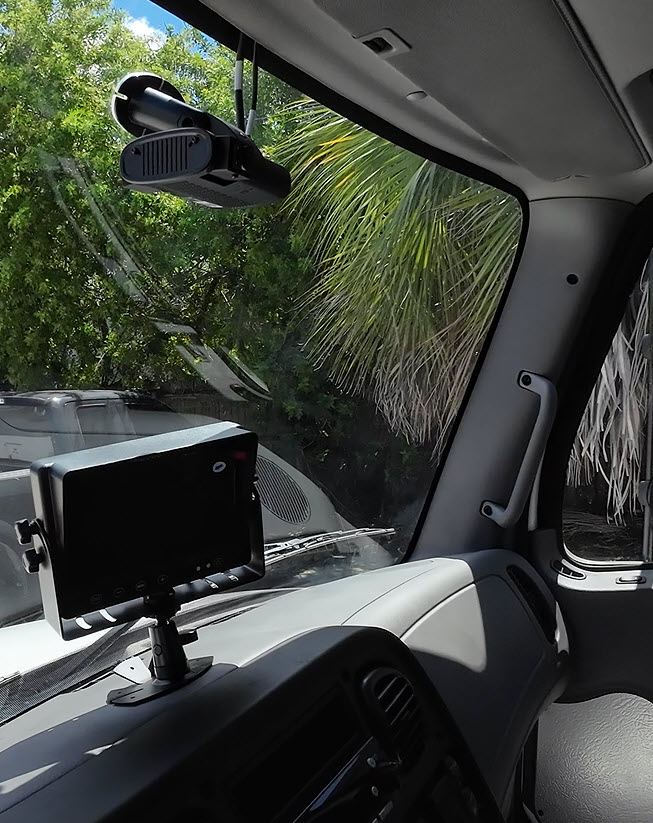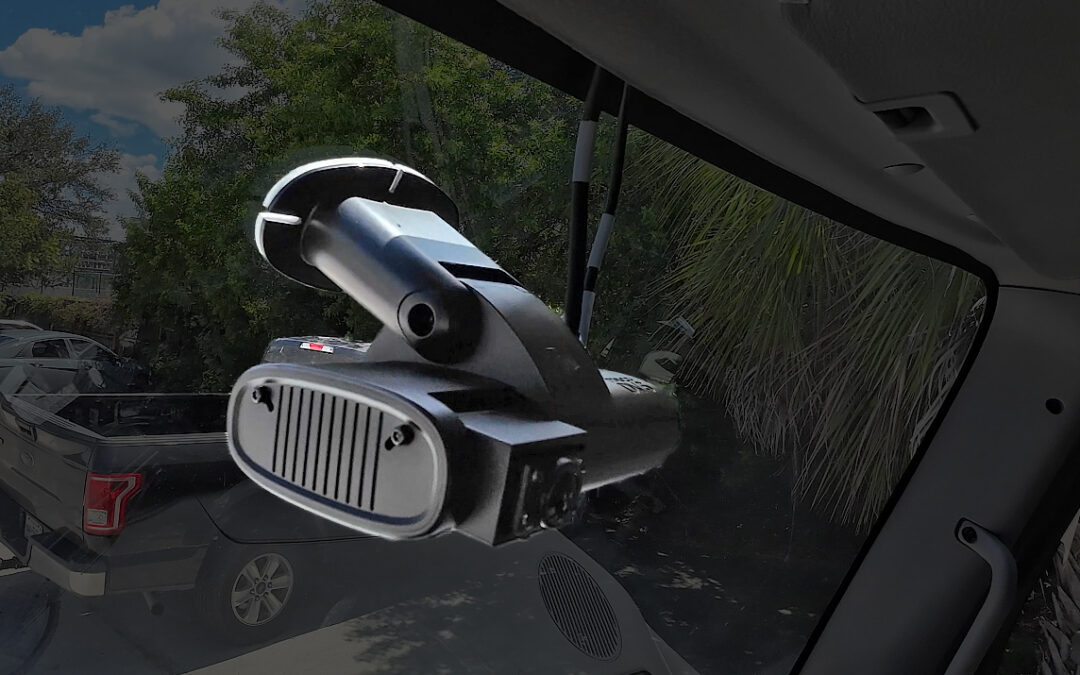Dashcam Installation
If you are considering doing a dashcam installation project on your own, there are multiple critical aspects to understand. Hiring a professional is often less expensive in the long run when wages, lost productivity, and other expenses are accounted for.
Coordinating an installation project is no easy feat. There are many moving parts, any of which can go wrong, and be very expensive to fix. Without experience, a project manager may skip important steps such as technician training or specific requirements to ensure proper function.
If the dashcam installation project covers multiple states, many locations and hundreds or thousands of vehicles, it is even more important to find an experience installation company. In many large deployments, it may require multiple dashcam installation companies to service all the area needed. Very few video installation companies have enough W-2 employees to do multi-state deployments. They will often work with other fleet installation companies with, or without, the customer knowing.

Article by Eron Iler, Fleetistics
Dashcam Installation Best Practices
There are multiple things you can do to improve the efficiency of a dashcam installation project. If you have never project managed a deployment, start with a meeting between all parties (dashcam vendor, installation company, customer). Record the meeting for review of important details and for accountability if things go wrong. Include all the stake holders such as operations, admin, accounts payable, safety, risk, etc. Technical experts should be on the call for both the installation company and dashcam supplier to discuss installation time, order process, shipping timeline and destinations, inventory management, future installation training, etc. After the meeting break down the tasks into operational area using a tool like Trello or Microsoft Planner and share with all parties. This increases the visibility and opportunity to spot issues before they translate into expensive service work.
Training is key to a complicated installation project. The fewer the technical issues, the more focus there can be on project administration and efficiency. Getting the field technician trained to a specific standard is key. This is true if you use and internal installation team or a mobile installation provider.
Part of the training process is providing written instructions, wiring diagrams, and contact information to everyone involved. Utilizing a shared cloud folder such as OneDrive, SharePoint or Google Drive ensures everyone has access, all the time.
A written agreement should be utilized between the installation company and the customer. Many times agreements are not used. A few emails are exchanged, maybe a text message is sent and work begins. This does not provide a minimum standard for execution. If you run into any issues, who is responsible for fixing it and the related expenses? If a part is missing, who is paying for the installer to return a second day which may require a 150 mile round trip? If a dashcam is not configured correctly, or doesn’t have the right SIM card, or the wrong harness is provides, who is paying? In a small deployment, with a small dashcam installation company, you may accept this. In big deployments, the installation agreement is as important as the service agreement with the fleet dashcam provider.
It is important to understand the terms of the installation warranty and the financial consequences of how it is executed. There are often gray areas such as when a dashcam falls from a window. Did the installer clean the glass correctly or did the glue fail? Who is going to pay and how will it get rectified. In populated areas, problems are easier to deal with. In remote areas, or at satellite offices, where there is no installation service provider, it becomes very expensive to return to stick a dashcam on the window.
The billing process is final process. Hopefully this was well covered in the early stages. People get nervous and change when money is involved. Invoicing and payment along the way does a lot for building mutual trust. Large corporations are generally more challenging so a meeting between AP personnel and the vendors is a good idea.
Working with Dashcam Installation Companies
Communication is the biggest factor. A professional dashcam installation company will use a standard form to gather the needed information to avoid downstream issues. Many dashcam companies provide a certification process before a GPS installer can install dashcams. Most dashcams are similar but small details can impact the long-term installation performance. A good example is the Rosco DV6 dashcam windshield mounting process. When it is done per the instructions provided by 3M, it is 100% reliable. If a step is skipped, the dashcam is likely to fall off in the first year.
Dashcam installation companies sometimes use w-2 employees but many will use independent contractors. Be sure there is a plan to communicate from the top level company meeting down to the technician doing the work. Often times, things are lost in translation and the customer has to deal with it. If there are unique aspects to the installation, how is the field tech going to be trained by the installation company?
For smaller deployments, you will likely get all the dashcams at once and be expected to install them.
When interviewing dashcam installers, think about the questions you are getting from them. Are they asking the right questions to ensure a smooth installation project? If not, what types of issues will result from poor communication and coordination on their part.
Questions Installers Should be Asking Customers
1. How many vehicles?
2. Type of vehicles?
3. Number of locations?
4. Days and times they are available for installation service based on x hour(s) needed?
5. What is the complete contact information at each location?
6. Is there a project manager on the customer’s side to manage issues?
7. Have all points of contact been briefed?
8. What is the resolution if we do not get cooperation?
9. Who is out after hours contact if installs are being done after hours?
10. What documentation is available on the dashcam installation?
11. How do we confirm the installation is correct and working?
12. What documentation is required? Who do we send it to?
13. What is needed to be paid on-time?

